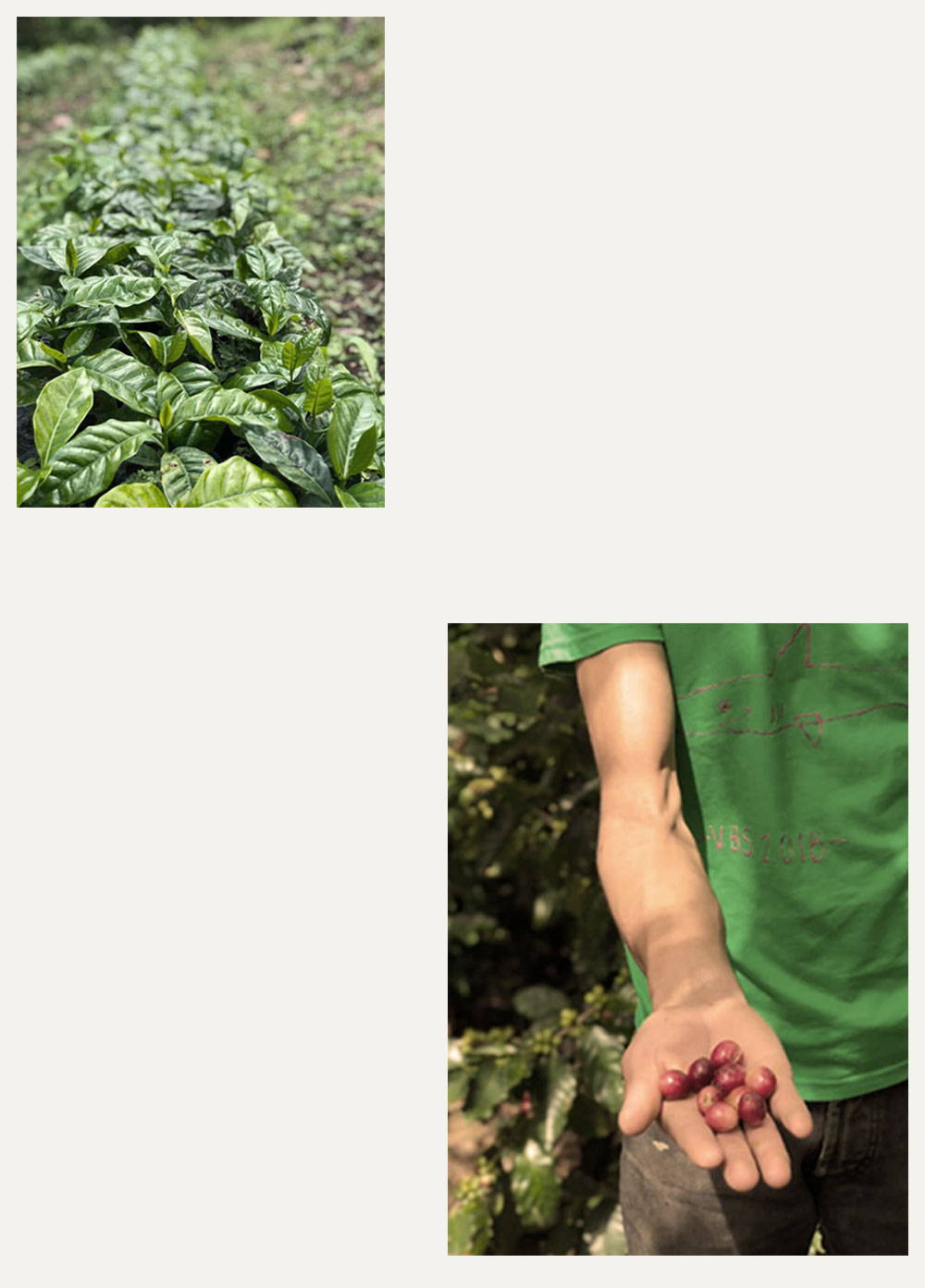LEARN — Regenerative Organic Certification
Here at Canyon Coffee, we are very proud to be part of a community of early adopters ushering in a new, paradigm-shifting standard: Regenerative Organic Certification (ROC).
Created in collaboration by folks from Patagonia, Dr. Bronner’s and the Rodale Institute, the certification was developed to establish the highest standards in the world for soil health, animal welfare and farmworker fairness. In focusing on regenerating soil health and considering the full farm ecosystem, it’s the first certification we find to be truly comprehensive in its approach to addressing all impacts — environmental, economic and social — of agriculture.
We have joined this growing group of farmers, businesses and policymakers by being one of the first coffee roasters to share the initial Regenerative Organic Certified coffees with the world. Beginning with coffee from the Sacacli Cooperative of Nicaragua, which we have been using for Alentejo since August of 2022, we are excitedly awaiting the arrival of more ROC coffees and are planning to convert the majority of our coffee to ROC over the next few years.

Soil is everything. Life on Earth as we know it cannot exist without it. Yet, scientists have predicted that global topsoils will be depleted in just 60 years at our current rates of degradation. Chemical-heavy farming techniques, deforestation and global warming are the greatest causes. It’s a vicious cycle, as industrial agriculture depletes the carbon-sequestration powers of soil, it’s also responsible for contributing up to 25% of the emissions driving the climate crisis.
Meanwhile, farmers are pressed. It’s a vulnerable, risky way of life, prone to myriad elements — many of which are becoming exacerbated by climate change. But there is hope.
With regenerative organic agriculture, we can rehabilitate soil and improve the lives of farmers. Through the process, we can sequester carbon, build healthier communities, and reap more nutritious and abundant yields.
The Regenerative Organic Certification seal used the USDA Certified Organic standard as a baseline. From there, it adds important criteria and benchmarks that incorporate the three major pillars of regenerative organic agriculture into one certification. The end result is a framework to ensure the highest standards are being met.
In the process, it provides a seal that enables us, as consumers, to identify and support an approach to agriculture that is truly sustainable — in the full, holistic definition of that word.

Ask any coffee farmer what the greatest threat to coffee production is, and they will say climate change. Rising temperatures impact coffee in a number of ways. Perhaps most notably in the heightened threat of fungus and pests, and the speed at which they can proliferate. Increasingly intense storms damage trees and minimize yields, and volatile weather patterns have led to more drastic periods of heavy rain or drought. Lower yields (smaller harvests) lead to economic instability, which presents another of the greatest challenges farmers are currently facing: lack of workers, and lack of interest in the next generation to farm.
The solution to all of these challenges might be best summed up in one word: resilience. And that begins with the soil.
It has been discovered firsthand by coffee farmers we’ve spoken with that the conventional, chemical-input heavy approach to growing coffee (using conventional pesticides, herbicides, fertilizer, etc.) leaves coffee trees less able to cope with and persevere through the effects of climate change. In contrast, trees and plants growing where soil health has been restored through regenerative practices are stronger, more productive, and better equipped to adapt and bounce back from climate-change induced setbacks.

Here at Canyon, we’ve been committed to organic certified coffee from the beginning. It’s a commitment that predates our company, going back to an ingrained desire we had to support farmers making the commitment to a more sustainable — i.e. less polluting, more environmentally conscious — mode of agriculture, and be healthier in the process.
To us, we feel that buying ROC coffee, supporting more producers in their efforts to attain the certification, and promoting awareness and education around the certification are the best ways we as a company can support and empower producers, while also contributing to the mitigation of climate change, the restoration of soil health, and healthier communities.
